The agenda has been announced for WEAR 2023! Featuring speakers from the NBA, Stanford University, Microsoft Research, Air Force Research Laboratory, AFFOA, AATCC, Qualcomm, Exponent, NuCurrent, and more.


David Weiss serves as Senior Vice President, Player Matters of the National Basketball Association. He leads a team that is responsible for the strategy, finances, technology, and operation of all player health matters for the NBA and its affiliates. This includes the health aspects of the NBA’s response to COVID-19 including the development of the health and safety protocols for the NBA’s 2019-20 season restart in Orlando and subsequent seasons.
Weiss manages league health programs related to infectious disease, a league-wide electronic medical records system, an injury data and analytics program, cardiac screening, concussion, and league health- and performance-related Committees, including the Wearables Committee and the NBA’s Sports Science Committees, along with a public-private research portfolio in these areas. He also plays an active role in the league’s mental health programs, anti-drug program, and other topics related to the league’s Collective Bargaining Agreement with the Players Association.
Weiss joined the NBA in 2012, and previously was associated with the law firm of Skadden, Arps in New York. Named to SportsBusiness Journal’s Forty Under 40 list in 2016, he is a graduate with honors from both Dartmouth College and The University of Michigan Law School.
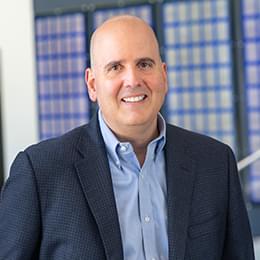

Dino Bekis is the vice president and general manager of the wearables and mixed signals solutions business unit for Qualcomm Technologies. In this role, he is responsible for leading two critical expansion platforms for Hearables/Shareables and Smart Watch/Wearables, the broad portfolio of power management solutions, and our security product offerings. Bekis started his career as an engineer, and for more than 25 years, has helped define new technologies, create new businesses, and drive the expansion and scaling of existing product lines.
As a senior leader and technologist, he delivers on and executes business strategies to develop new wireless connectivity technologies and turn these core investments into long-term sustainable franchises that drive industry innovation. Under Bekis’ leadership, his team drove increases in revenue and helped capture leading share in mobile customer’s Wi-Fi platforms, built an industry-leading client portfolio and roadmap and partnered with teams to drive new platform solutions. These and other investments have positioned the company as the frontrunner as wireless connectivity has become ubiquitous.
Prior to this role, Bekis was the vice president of Marketing for the IP Group at Cadence Design Systems, where he was responsible for product marketing, business development and operations for Cadence’s entire commercial IP product portfolio.
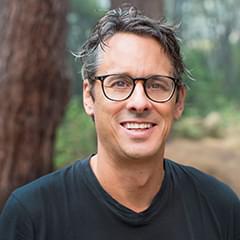

Seth Casden is the CEO and co-founder of Hologenix, a materials science company dedicated to developing products that amplify human potential, including its flagship innovation CELLIANT®. In 2021, Hologenix was named to the Inc. 5000 of the fastest-growing privately held companies in the U.S. for the third year in a row.
An industry thought leader, triathlete and world traveler, Casden is a frequent speaker at industry conferences. He has been interviewed by, and authored content for, top-tier media publications such as Forbes, Inc. Magazine, Success, Fast Company and Thrive Global. Before founding Hologenix in 2002, Casden worked in private equity. He holds a Bachelor of Science in Business Administration from Pepperdine University. His mission is to innovate infrared textiles that improve the quality of people’s lives.
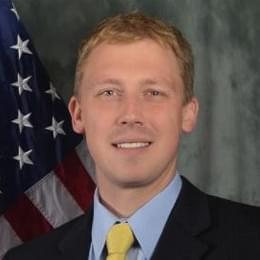
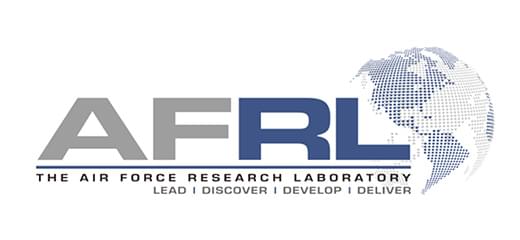
Creative research scientist with 10+ years of experience leading a multi-discipline team focused on building foundational scientific expertise in soft materials and transitioning technology towards cutting edge capability for future military applications. Areas of technical expertise include Stretchable / Flexible Electronics, Liquid Electronics, Colloids, Inorganic Nanoparticles, Plasmonics, Metamaterials, Organic Photonics, and Additive Manufacturing of Functional Materials.
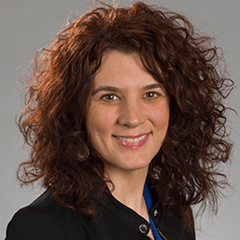

Passionate, high energy business and technology leader adept at aligning unmet and emerging market needs with differentiated technology solutions. Proven success in running cross-functional, global organizations, providing team members with support and mentorship. Expertise in solving multidisciplinary problems through structured methods. Known for being action oriented, with an ability to analyze situations rapidly and the vision to move several steps ahead. Strong desire to innovate and create products that have a societal impact.
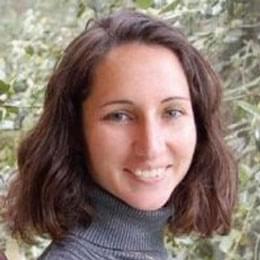
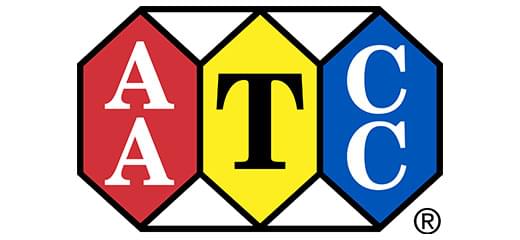
Diana Wyman is Executive Vice President of AATCC, a professional association and standards development organization for the global textile industry. A self-proclaimed textile nerd, Diana has been involved in all aspects of textile testing—from managing a contract lab to developing specifications for a retail brand. She has participated in the standards development process as both staff and volunteer for AATCC as well as textile-related committees of ASTM, IEC, IPC, and ISO. Diana holds degrees in Fashion Merchandising, Textiles, and Business Administration; she is currently pursuing a PhD in Fiber and Polymer Science. Mili John Tharakan is a seasoned inventor-business leader who has been practicing in the field of Smart Textiles since 2004. She founded and led the Smart Textiles Innovation Lab at Welspun (one of the largest home textiles manufacturers in Asia) and went on to develop, manage and launch Smart home Textile products on the global market. Her experience spans across both academia and industry. She currently works with the Smart Textile Alliance to establish standards for the industry. She has been a Smart Textile evangelist for over a decade and is keen to support companies who are exploring this emerging technology.
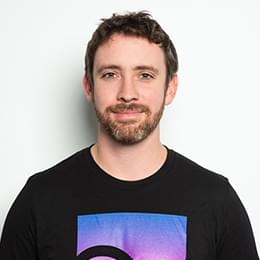
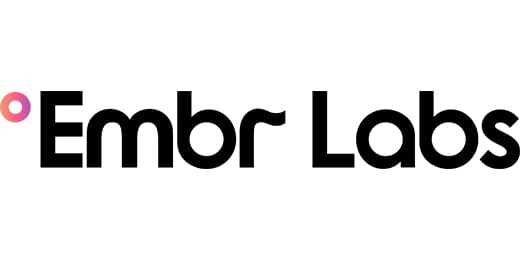
Dr. Matthew Smith is the Chief Scientific Officer, Co-Founder, and President of Embr Labs, the first thermal wellness technology company. Since the company’s founding in 2014, Dr. Smith and his team have developed and patented a platform technology for delivering intelligent, low power, and wearable thermal experiences and commercialized Embr Wave, an intelligent bracelet that cools or warms you with the press of a button. Embr Wave achieved 6x its fundraising goal on Kickstarter in 2017, has since sold over 40,000 units, was named Time Best Invention in 2018, has been validated in the lab and in a clinical study, and led to a partnership with J&J. Dr. Smith leads IP development, core technology R&D, and thermal wellness science at Embr Labs. He will be speaking about his experiences starting a haptics company, lessons learned through constant engagement with customers, and the exciting and complex science underlying thermal sensations and their profound impact on our subjective human experiences. Prior to co-founding Embr Labs, Matt earned his Ph.D. at the Massachusetts Institute of Technology in Materials Science & Engineering, where he co-authored over 20 publications, co-founded a technical consulting company, and received the department’s Best Ph.D. Thesis award for his work on nanostructured semiconductor devices.


Before coming to Stanford, Angela was the lead analyst for industry research on wearables at Gartner. She advised companies bringing emerging wearable technology to market and was a frequent speaker at industry events. Her research included wearables as part of the Internet of Things, for artificial intelligence applications, for healthcare and as human-machine interfaces. Angela’s career in the tech industry also includes management of multi-company research programs at Intel and of R&D collaborations with semiconductor process equipment suppliers at Texas Instruments. Angela has an M.S. in Electronic Materials from the Massachusetts Institute of Technology, an M.S. in Management from MIT Sloan School and a Bachelors of Electrical Engineering from the University of Dayton.
Angela McIntyre is the Executive Director of the Stanford Wearable Electronics (eWEAR) Initiative. She manages the eWEAR affiliates program and provides member companies opportunities to connect with research and events related to wearables at Stanford University. As a primary contact to eWEAR, Angela fosters membership, assists in forming collaborations between industry and faculty, leads eWEAR events, and is an evangelist for wearables research at Stanford.
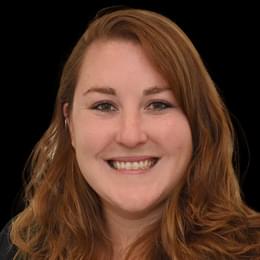

Dr. Clayman consults on a wide variety of proactive and reactive matters related to the chemistry of polymers and materials.
Trained as a chemist, Dr. Clayman leverages her knowledge of chemistry and polymer science in projects related to medical devices, consumer electronics, pharmaceuticals, contamination analysis, and material compatibility. She has assisted clients with materials specifications, formulation changes, product safety assessments, end-use testing, and failure analysis.
Dr. Clayman has extensive experience in the characterization of materials, with a focus on analytical chemistry, using tools such as FTIR, GC-MS, LC-MS, and NMR to investigate species on a molecular level, to GPC and MALDI-ToF to investigate larger polymeric materials. She has experience with electroactive polymers, porous materials, biodegradable polymers, and adhesives, among other common commercial plastics used in consumer products, building materials such as polymeric pipe, and implantable medical devices.


Alberto Peralta is a visionary in the field of wireless power and data systems, serving as the Chief Technology Officer at NuCurrent. With a career spanning over a decade, he drives advancement of wireless technology across the consumer, industrial, and medical sectors.
Under his leadership, NuCurrent has become a global authority, transforming 500M+ devices worldwide. This milestone earned the company recognition as one of Fast Company's Most Innovative Companies in 2023.
As a lead inventor of NuCurrent’s extensive patent portfolio (350+ patents granted or pending), he charts the technology roadmap & plays a pivotal role in shaping industry-wide standards. His active participation in wireless power standards bodies (e.g. AirFuel and Wireless Power Consortium) underscores his dedication to propelling the industry forward.
After graduating with a BSEE from Purdue University in 2012, Alberto's joined NuCurrent as the company's first employee, focusing on antenna design and integration within wireless power systems, RF amplifier design featuring ASK/FSK circuitry for in-band communication, and fault detection control. This work was foundational for his role as key architect and contributor to NuCurrent's IP portfolio, which forms the cornerstone of the company's successful licensing model. He is set to earn a Master's in Engineering Management and Business Administration from Northwestern University in Dec. 2024, a testament to his dedication to lifelong learning.
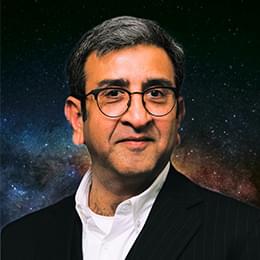
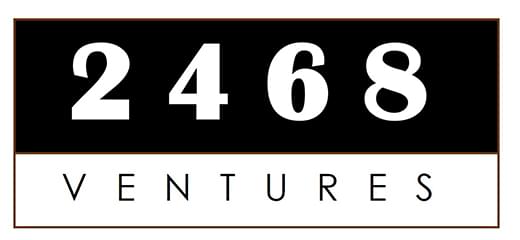
Pankaj Kedia is a Tech Intrapreneur turned Early-Stage AI / Deep Tech Investor, Venture Partner, CXO Advisor and Board Member.
As a Tech Intrapreneur, Pankaj played pivotal roles in incubating a range of businesses at Fortune 100 companies over the last 25+ years. At Qualcomm, Pankaj founded and led the wearables business to a 9-figure franchise, establishing Snapdragon Wear as the premier brand in the industry. Previously at Intel, Pankaj defined and launched the industry's first modern laptops and expanded Intel beyond the PC with the launch of the industry's first modern tablets, handhelds, and smartphones.
Pankaj is currently the Founder and Managing Partner of 2468 Ventures, a Venture Partner at VU Ventures, a Deal Partner at Ganas Ventures, and is a Board Member and CEO Advisor to numerous early-stage start-ups. As an angel investor in 100+ Early-Stage and Series A companies, Pankaj is focused at the intersection of AI / Deep Tech and targeted verticals including Healthcare, Industrial, Energy, Finance, and Consumer segments.
Pankaj also serves on the non-profit boards of the Salvation Army Kroc Center and Wearable Tech Ventures, is an Exec On Deck Fellow, a member of the Operators Guild, and a founding member of the Round community. He is currently enrolled in the Stanford LEAD innovation program, has an MBA from The Wharton School, an MS from the University of Michigan, and a BS from the Indian Institute of Technology.
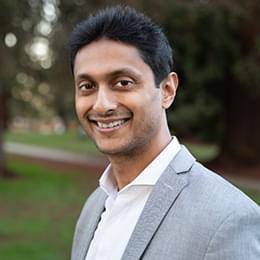

7 patents: Accredited "Individual of Extraordinary Ability" by US Govn. (USCIS)
8+ years at Apple: Managed an Org (iPhone, Watch, AirPods & Accessories)
Products: iPhone, iPad, Apple Watch, AirPods, MacBook Air & Pro, iMac, Mac Mini
Experience: UI/UX, Sensing, Haptics & Wireless Power (managing multiple teams & products)
Technical: Architecture of multi-physics systems, System Integration, Prototyping, Algorithms
Education: BS & MS at Georgia Tech [Honors Program, Dean's List]
Fields: Major - EE | Minors - Aerospace Eng, Finance | Certificate - Engineering Entrepreneurship


Roger Grace Associates provides comprehensive strategic marketing consulting and marketing communications services to domestic and international high-technology clients, from startups to Fortune 100 companies in addition to government agencies.
Our mission is to assist our clients in the successful commercialization of their technologies by becoming a trusted partner to their team. We recommend and execute proven strategies to accomplish this. We use our extensive network of trusted colleagues, rare insights, and unmatched expertise in various sensor technologies and their applications to achieve client success. The firm’s technology focus includes Sensors, MEMS, and capital equipment. We specialize in the commercialization of these technologies for our clients. We conduct market research programs that lead to the creation and development of integrated marketing communications campaigns for branding, positioning, and new product launches.
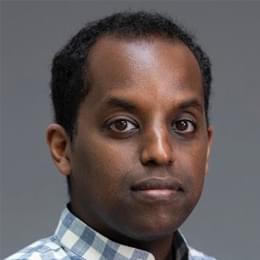

Teddy Seyed is a Senior Researcher at Microsoft Research, where he also leads the Future of Wearables Team. He completed Canada's first Entrepreneurial Ph.D. in Computer Science at the University of Calgary, where he also recieved a B.Sc. and a M.Sc. in Computer Science.
Teddy's work blends research that creates new forms of intelligent, interactive textiles with a focus on realizing commercial applications that can advance the field globally. Teddy's award-winning work has been featured in places such as Forbes Magazine, MIT Tech Review, Gizmodo and others.